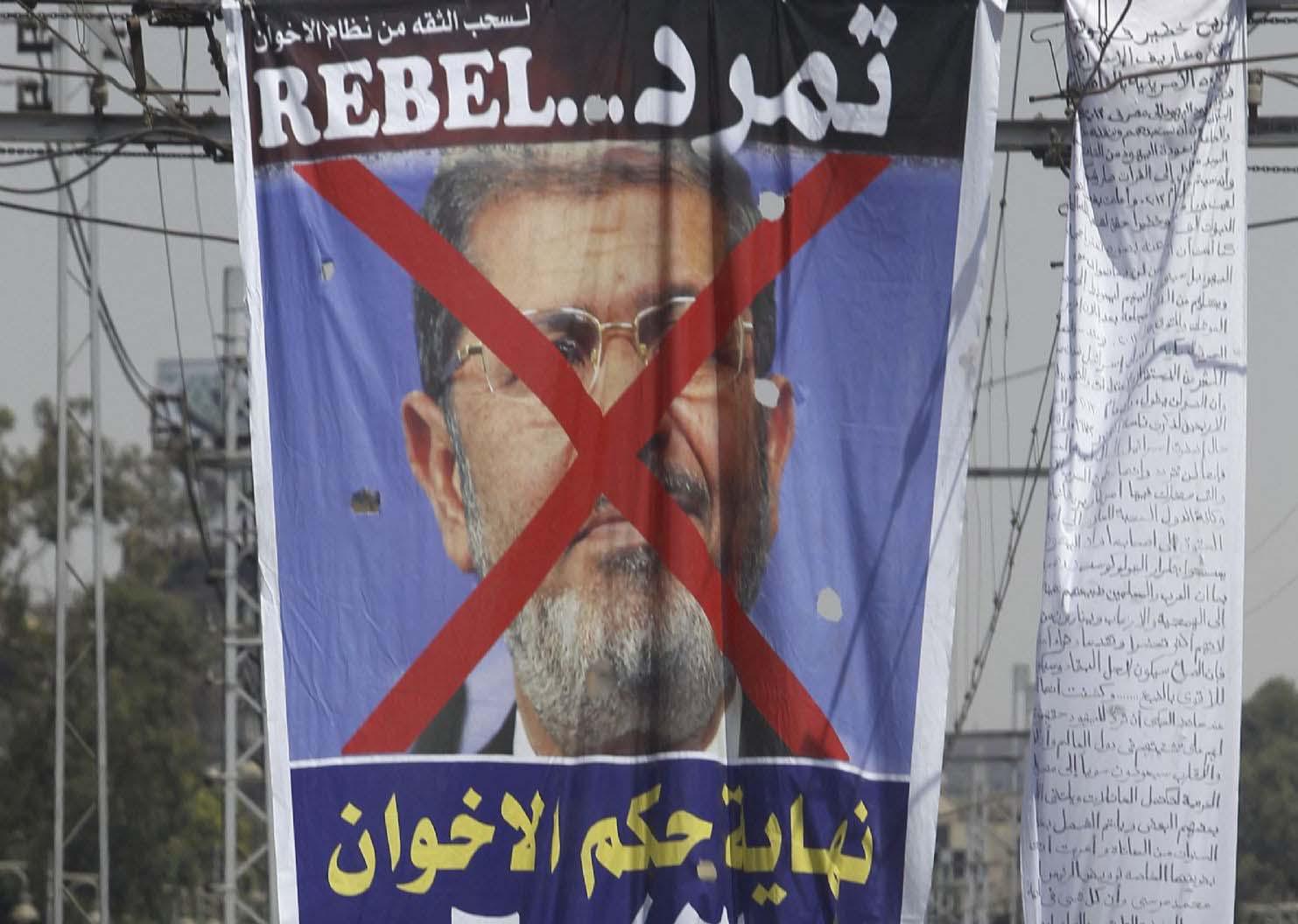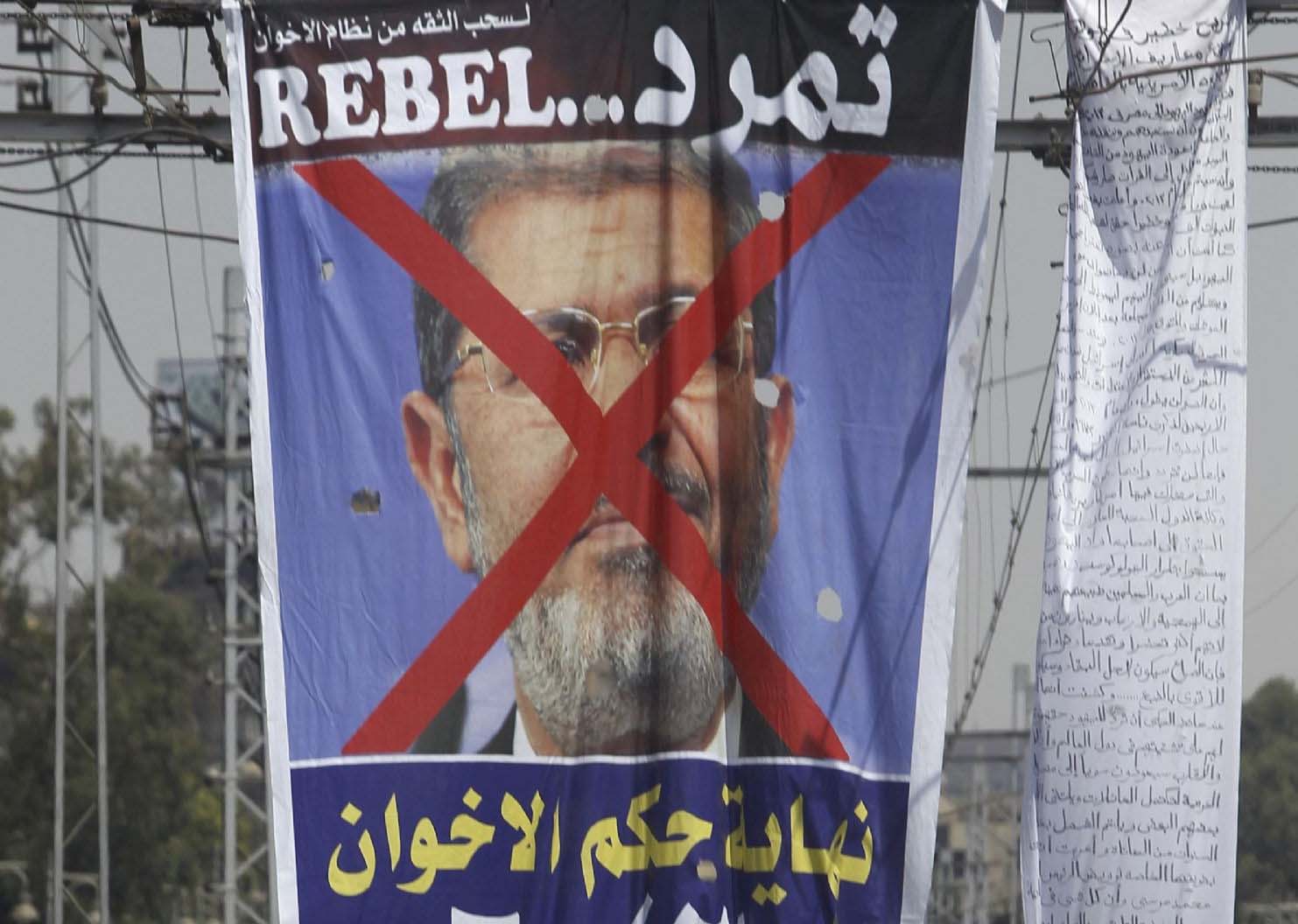In designating Muslim Brotherhood as foreign terrorist organisation, the devil is in the detail
WASHINGTON — The White House confirmed that the United States is considering designating the Muslim Brotherhood as a terrorist organisation, bringing cheers from those wary of Islamism but also questions regarding the legal complexity of the move.
“The president has consulted with his national security team and leaders in the region who share his concern and this designation is working its way through the internal process,” White House spokeswoman Sarah Sanders said in a statement released April 30.
The New York Times reported April 29 that US President Donald Trump was considering the designation of the Muslim Brotherhood after being lobbied by Egyptian President Abdel Fattah al-Sisi.
The Muslim Brotherhood opposes the Sisi government. In addition to Egypt, several countries, including Russia, the United Arab Emirates, Saudi Arabia and Bahrain, have designated the Brotherhood as a terrorist organisation. In most cases, that came after a 2013 military-supported uprising in Egypt toppled the rule of President Muhammad Morsi, a long-time Brotherhood member.
If the designation were to go through, individuals and companies could face travel and business restrictions because of contacts with the Brotherhood-affiliated groups and individuals.
The possibility of the designation is not new. US Senator Ted Cruz, a Republican from Texas, introduced a bill in 2017 to designate the Muslim Brotherhood a terrorist organisation and pushed for it again last fall.
Cruz reiterated his views in a social media post May 1. “I believe that the Muslim Brotherhood maintains a global network of Islamists and Islamist groups, including terrorist groups,” he said.
During his time as a congressman from Kansas, US Secretary of State Mike Pompeo also pushed for the designation.
Jonathan Schanzer of the Foundation for Defense of Democracies in Washington told US lawmakers in a testimony last year that the Brotherhood’s ideology was “the gateway to Islamist violence.” He also accused Turkey and Qatar of being “the primary state backers” of the organisation.
Previous US initiatives regarding the Muslim Brotherhood were lost in limbo because of legal complications of the move.
Michele Dunne, director of the Rafik Hariri Centre for the Middle East at the Atlantic Council, explained on social media that, if the Trump administration moved forward, the secretary of state would have to inform Congress, which would have seven days to review it.
The Muslim Brotherhood could seek judicial review to determine whether the designation is legal. This might be where the designation would run into difficulties because the administration would have to prove how a loose organisation such as the Brotherhood would fit the definition of terrorism.
Robin Simcox, Margaret Thatcher fellow at the Heritage Foundation think-tank, wrote in the Conservative that the proposal should be taken seriously.
“Labelling the group a terrorist organisation would be a tricky needle to thread,” Simcox wrote. “For starters, here in the US, the government has, unfortunately, chosen to engage with Muslim Brotherhood legacy groups like the Council on American-Islamic Relations. Even the Trump administration has done so.”
“If there is indeed credible evidence that Brotherhood groups are carrying out terrorist acts and the US can legally designate them as foreign terrorist organisations, it should unquestionably do so,” Simcox added. “If that evidence does not exist, then the hard part really starts: The US will have to work with allies to roll back the Brotherhood’s ideology. That has proven a step too far for past US administrations. It would be a pleasant surprise if this one could break that cycle.”
The New York Times said “alternative ideas” discussed by the White House included “trying to identify and target a terrorist-linked group with ties to the Brotherhood that has not yet been designated or limiting any designation’s scope to the Egyptian branch.”
That would mean banning specific branches and figures instead of blacklisting the whole movement.
Egyptian editor Abdel Monem Said Aly has described a distribution of labour between the Brotherhood and terrorist organisations operating in Egypt. He wrote in the Cairo Review: “While organisations such as [the Islamic State] ISIS or al-Qaeda made their terrorist operations in Sinai and the Western Desert, the Muslim Brotherhood concentrated its operations on the Egyptian mainland.”
Establishing connections between the loose-knit organisation and the global jihadist network will not be easy. “There are offshoots, such as the Islamic State and al-Qaeda. Obviously, they may have originated in the Muslim Brotherhood but it’s a big stretch to say the Muslim Brotherhood is a terrorist organisation,” said Imad Harb, director of research and analysis at the Arab Centre Washington DC.
The designation would be more “symbolic than tangible,” said Barak Barfi, a research fellow at New America, a Washington think-tank, “because the Brotherhood does not have assets in the US and has not funded or met with American officials.
“It would serve President Sisi’s narrative that he is fighting terrorists of which the Brotherhood is the vanguard. Such a designation would allow him to tell Egyptians that even the United States understands the evils of the organisation.”
However, Barfi said he wondered how the designation might affect policy in Libya, Syria, Tunisia and Yemen, where the Brotherhood has branches active in government or in opposition groups that cooperate with the United States.
The move could complicate relations with certain allies, such as Turkey and Qatar, who have strong ties to the Brotherhood and who host members of the organisation.
Domestically, experts said the designation would be problematic for the United States in more practical ways.
Andrew Miller, deputy director for policy for the Project on Middle East Democracy in Washington and the former director for the National Security Council’s Egypt and Israel Military Issues department, stated on social media that the move would put pressure on resources.
“It is certainly fair to object to the (Muslim Brotherhood’s) political philosophy (as I do), particularly on moral issues and attitudes towards other religions,” Miller wrote, but then asked, “Do you think that pursuing the (Muslim Brotherhood) is so important that you are willing to risk pulling resources from groups that have not just the intent and capacity to strike the United States but also a demonstrated track record?”
Kelly Kennedy is an Arab Weekly correspondent in Washington.
Copyright ©2019 The Arab Weekly







